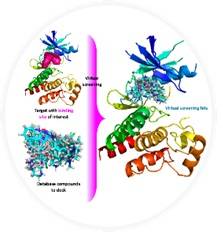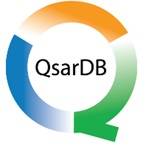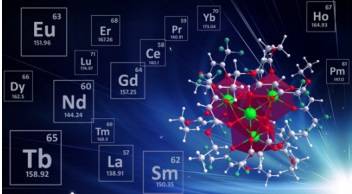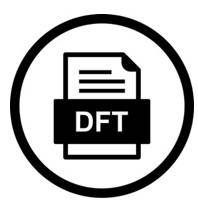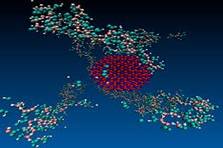The use of computational and informational techniques to understand the development as well as the challenges related to chemical sciences is termed Cheminformatics. It can also be mentioned, as the division of chemistry that has evolved through the progressive development of approaches along with computer and information science techniques. It is a field of science where computational methods are applied to solve various problems and challenges. The invention of epigenetic chemical probes, archiving and retrieving data on molecular structures, reaction pathways, molecular interactions, drug designing-delivering strategies, large combinatorial databases, etc., are the significant areas that involve Cheminformatics. Some of the Cheminformatic techniques that display an innovative role in the field of medicine and research are-
- Virtual screening automatically evaluates very large libraries of compounds with the help of computer programs.
- Quantitative structure-activity relationship (QSAR), which summarizes the Physico-chemical properties of chemicals or novel drugs.
- Molecular mechanics, in which force field is used for the optimization and minimization of energy of a molecule.
- Semi-empirical methods, use simplified versions of empirical corrections to improve the performance of any drug.
- Density functional methods, which verifies the electronic structure of an atom or a molecule.
- Molecular dynamics, explore the conformational space of large molecules like proteins.
- Monte Carlo analyzes the physical movement of atoms and molecules.
Computational chemistry software packages viz., molecular graphics, Quantum Chemistry, Protein dynamics, molecular design software, etc., are made available free and licensed to enhance the developments in the field of research. Besides, some of the publicly available databases representing a molecule are PubChem (the world’s largest free Chemistry database), ChemSpider (a free online chemical database that offers access to every detail of chemical specie required for discovering and designing drug molecules), chEMBL(a manually curated database of bioactive molecules)., etc which contain plenty of information about physical and chemical properties along with a structural representation of more than a hundred million compounds. To have a better insight, we can have an example of how to represent the molecular structure in the form of text, this can be done with the help of SMILES (Simplified Molecular Input Line Entry System). SMILES represents the structure of chemical species in the form of line- notation i.e., as ASCII strings. This system has significance as many computers software are more familiar with the ASCII format instead of 3D notation. For example, Cephalostatin-1 can be represented in SMILES format as-
|
Technique
|
Virtual image
|
Application
|
Example |
|
Virtual Screening
|
Machine learning algorithms that use training and test datasets composed of known active and known inactive compounds. |
Acceptor and donor Pharmacophores |
|
|
QSAR
|
Prediction of chemical toxicity, designing of drugs, investigation of mechanism. |
Monoaminoxidase inhibitors, Quinolines, Pyridines, etc. |
|
|
Molecular mechanics
|
Calculation of geometries, energies, and structural-based designing of the drug. |
Most of the organic chemical species. |
|
|
Semi-empirical methods
|
Treats large molecules, fast method and cost-effective. |
Unsaturated chemical compounds and radicals. |
|
| Density Functional Theory/ methods
|
Determines the probability of finding the electrons. Also, verifies the mechanism pathways. |
Most of the ionic and organic compounds. |
|
|
Molecular Dynamics |
Drug designing and structural determination, Protein folding, and used in molecular recognition. |
Biomedicines, Pharmaceutical sciences. |
|
|
Monte Carlo |
Used widely in statistical physics, designing, and comparing experimental data with theory. |
Oil reserve estimation, Disease infection estimation, etc. |
About the author
Shweta Potdar is a faculty of Chemistry at Acropolis Institute of Management Studies and Research (AIMSR) in the Department of BIOSCIENCES. She is pursuing her PhD from the School of Chemical Sciences, DAVV University, Indore. She is MPSET qualified and has received two Gold Medals in MSc Chemistry. She has a consolidated research experience of 4 years. Her research area comprises Synthetic Chemistry, Medicinal Chemistry, Computational Chemistry, Heterogeneous catalysis, and Nanotechnology. She has publications in various reputed international and national journals. Also, she has participated in many international and national conferences, seminars, and workshops and presented her research work.
Q: Is Acropolis Institute of Management Studies and Research a known college/Institute?
Note: The views expressed in this article are solely author’s own and do not reflect/represent those of Shiksha
Shiksha writer
News & Updates
- B.Sc. colleges in Indore
- B.Com colleges in Indore
- B.A. colleges in Indore
- M.Sc. colleges in Indore
- B.A. LL.B. colleges in Indore
- BBA LL.B. colleges in Indore
- M.Com colleges in Indore
- BCA colleges in Indore
- BBA colleges in Indore
- Science colleges in Indore
- Humanities & Social Sciences colleges in Indore
- Accounting & Commerce colleges in Indore
- Law colleges in Indore
- Business & Management Studies colleges in Indore
- IT & Software colleges in Indore
Contact Details
Address
Acropolis Institute of Management Studies and Research, Bypass Road, Mangliya Square
Indore ( Madhya Pradesh)
Get details of Similar Colleges
Student Forum
Answered 5 months ago
Here's what current students and alumni have to say:
Pros:
* Good faculty members who are supportive and helpful
* Well-equipped computer labs and libraries
* Average placement rate of 70-80%, with top recruiters like Lupin, Sun Pharma, and Bharat Biotec offering salari
A
Beginner-Level 1
Answered 5 months ago
Based on student reviews and feedback, here's a summary of the key points:
Faculty and Teaching Quality
* Faculty members are knowledgeable, helpful, and experienced.
* Teaching quality is good, with a focus on both theoretical and practical knowledge.
* Course curriculum
A
Beginner-Level 1
Answered 5 months ago
Course Curriculum
* The course curriculum is relevant and provides good knowledge about business, management, finance, and law (student).
* The course curriculum is not updated with today's scenario, but it is still relevant (alumni).
* The course curriculum focuses on b
A
Beginner-Level 1
Answered 6 months ago
Placement Cell Success Rate: According to various students' reviews, the placement cell at Acropolis Institute of Management Studies and Research (AIMSR) has a success rate of around 40-50%.
the highest Package Offered: The highest package offered to BBA students is re
A
Beginner-Level 1
Answered 10 months ago
A
Beginner-Level 1
Answered 10 months ago
A
Beginner-Level 1
Answered 10 months ago
A
Beginner-Level 1
Answered 10 months ago
A
Beginner-Level 1



